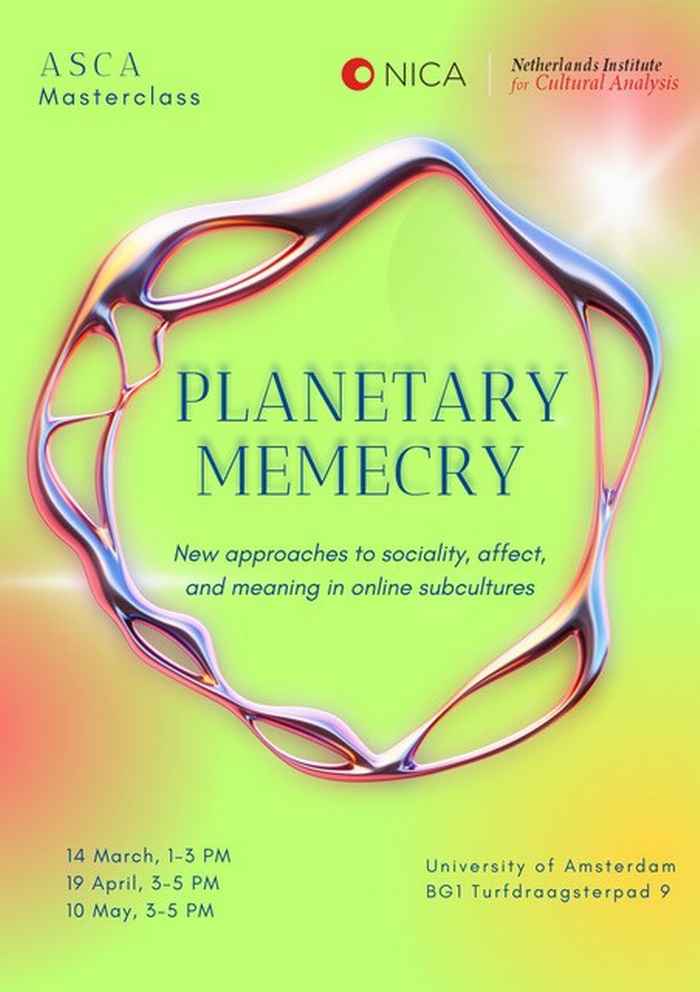Making Memes: A Media History
- Date
- 19 April 2023
- Time
- 15:00 -17:00

Hannah Barton has recently completed a PhD at Birkbeck, University of London. Her doctoral thesis conceptualises memes - internet or otherwise - as phenomena rendered perceivable through the utilisation of media within social practices, and thus inherently shaped by media and mediation. Hannah engages with a range of disciplinary areas in this work - including digital and cultural studies, U.S. history, memetics, media theory and philosophy, art theory - which are synthesised into a media-historical account of the meme.
Hannah's PhD was completed part-time, and since 2017 Hannah has managed digital projects at Tate. In this role Hannah has overseen the production of a range of audience-facing digital products for Tate's online platforms, as well as managed a programme of activity which has reconfigured the institution's digital architecture. Hannah has also contributed to a number of research projects in her role at Tate, including Towards a National Collection: Transforming Collections: Reimagining Art, Nation and Heritage, for which she is currently a Co-Investigator. From May 2023 Hannah will take on the role of Head of Digital Media at National Museums Scotland.
Talk Synopsis:
In this session, Hannah will develop a media history of the meme. Those attending will be invited to consider how a historic account of the meme - internet or otherwise - reveals them as phenomena shaped by media and mediation.
The class will begin by returning to the contested inauguration of memetics in the 1970s. This fraught (and ultimately stymied) academic field set out to theorise cultural evolution in respect to the "meme" - a neologism erstwhile coined to describe a unit of cultural transmission. Noting that scholars engaged in memetics did not adequately define what these units were, Hannah will suggest that this conceptual shortcoming came downstream of memeticists failing to account for the role of media and mediation in their theoretical forays.
From here, Hannah will consider the legacy of memetics in respect to contemporary theoretical engagements with the internet meme. In particular, Hannah will argue that - despite emerging as arrays of digital artefacts typically used within cultural practices - internet memes remain challenging to define; and moreover, that returning to the constitutive role that media and mediation play the production and encounter of memes may provide scholarship with a useful framework via which these conceptual troublemakers can be productively theorised.
Subsequently, Hannah will work with the class to place internet memes - oftentimes characterised as vernacular and associated with subcultural milieu - into a media historical context. To do this, Hannah will mobilise a number of historic and contemporary case studies - including Faxlore, 20th century conspiracy theories, early web LARP-ing, the consolidation of reaction GIFs into digital vernaculars, and recursive "meme cycle" meme - to elucidate how contingent and evolving technical and social conditions necessarily result in the emergence of variegated meme forms.
Hannah will conclude by inviting the group to consider how a media historical account of memes can serve both to lend further definition to the meme-as-concept, while drawing into relief the ways in which internet memes possess distinct qualities, and bring about particular cultural effects.